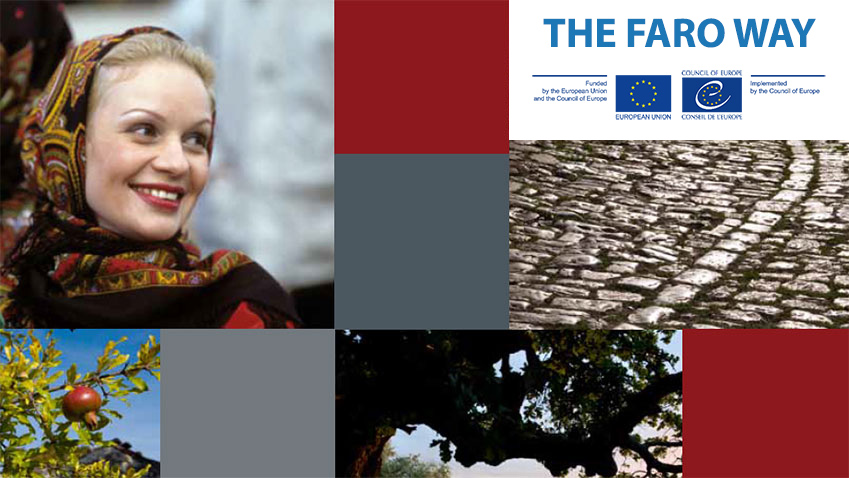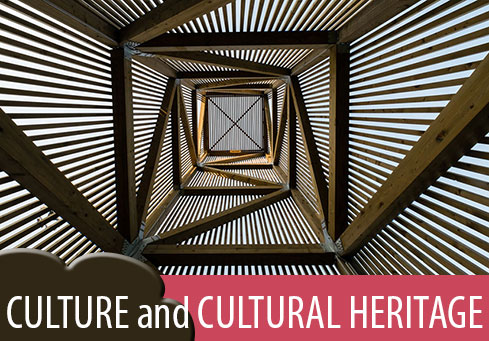Enhanced participation in cultural heritage: the Faro Way

The Faro Convention emphasizes the important aspects of heritage as they relate to human rights and democracy. It promotes a wider understanding of heritage and its relationship to communities and society. The convention encourages to recognize that objects and places are not, in themselves, what is important about cultural heritage: they are important because of the meanings and uses that people attach to them and the values they represent. Cultural heritage appears then as a resource to be passed on to future generations to renew consensus around the values of society, develop the dialogue, democratic debate and openness between cultures. The Faro Convention emphasizes the benefits that heritage generates for the economy, society and the environment, but also that, for this to happen, its protection and valorisation must be shared and inclusive.
The Faro Convention particularly encourages the role of civil society and communities in heritage governance as a way to promote human rights and democracy. Targeted activities shall encourage people-centred, inclusive, forward-looking, more integrated, sustainable and cross-sectorial approaches to cultural heritage, and promote innovative models of participatory governance and management of heritage.
“The Faro Way: enhanced participation in cultural heritage” is a Council of Europe / European Commission Joint Project which aims to encourage that increased role of communities in heritage governance through the promotion of the Faro Convention principles.
“The Faro Way” EU-CoE Joint Project is structured around three major goals:
- to ensure the commitment of all stakeholders, and in particular national authorities, to the Faro Convention principles;
- to showcase concrete examples of implementation of the above principles at all levels;
- to build long term stakeholder cooperation to translate these principles into reality.
Three main lines of action are considered to achieve the above objectives:
Increasing the number of signatures and ratifications of the Faro Convention
The commitment of national authorities to the Faro Convention principles will be promoted through the organisation of four seminars and a final conference to advocate for the greater involvement of all stakeholders and a publication on policy guidance will be produced to support that effort.
Promoting implementation of the Faro Convention
The setting up of concrete actions to implement the Faro Convention principles will be encouraged through a document with concrete examples of Faro Convention inspired achievements and the production of audio-visual material clarifying the implications for the various stakeholders.
Building on a dynamic pan-European network
The long-term sustainability of the Faro Convention principles will be ensured through the promotion of a network of heritage stakeholders (linked to the existing Faro Convention Network) to continue sustaining related actions through the exchange of knowledge and experiences.
This Joint Project aim to be a concrete contribution to the European Year of Cultural Heritage long term initiatives, and particularly initiative 9 “All for Heritage”.
The new publication “The Faro Convention at work in Europe: selected examples”
Discover “Your Faro Way” - the new Faro Convention role-playing game
Third Regional Seminar "Faro Convention for concrete action on cultural heritage"



